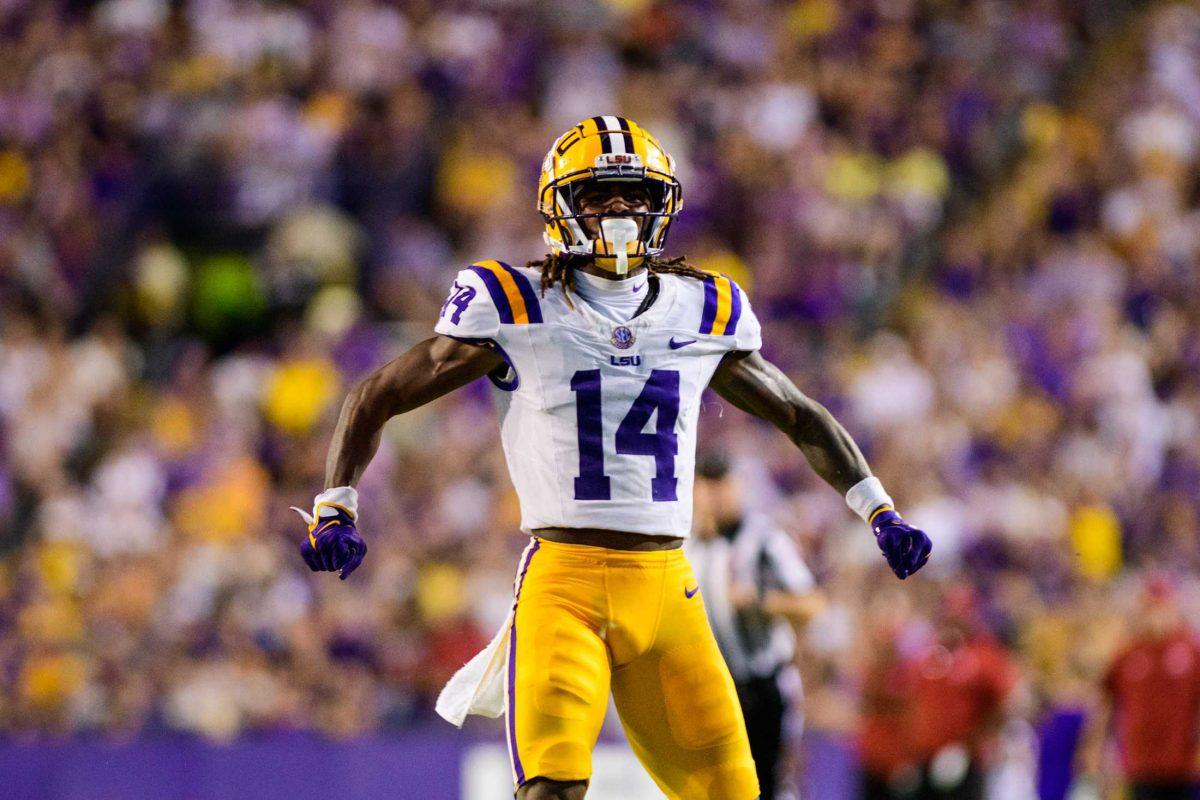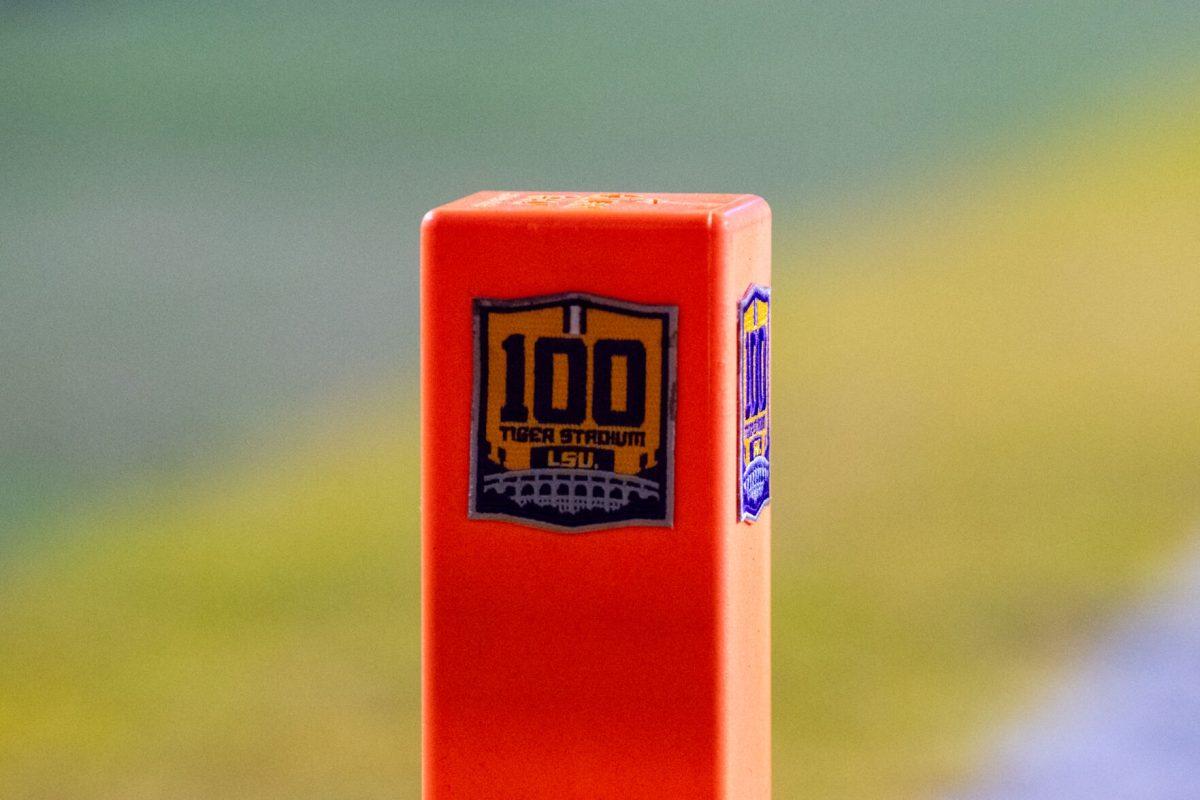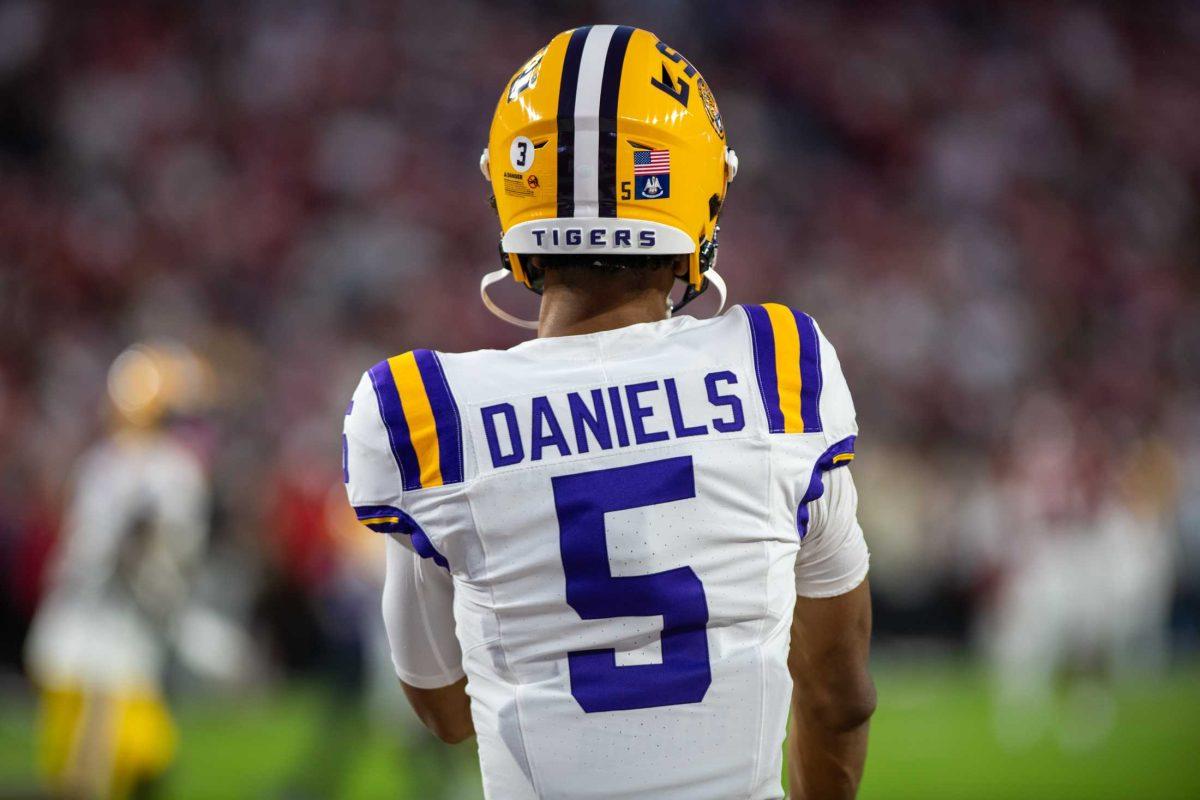As the first half clock wound down, Jayden Daniels dropped back and looked to take a shot on first down.
After scanning the field, he found Brian Thomas Jr. wide open, and hit him in stride to cut LSU’s deficit to three right before halftime.
It was the touchdown LSU desperately needed, down 13-3 with less than a minute in the first half, and it set up another 49-yard touchdown to Thomas to start the second half.
“I feel like it brought the energy back to the whole team,” Daniels said. “Giving him [Thomas] the chance to make a big play right before the half and then come out at halftime to make another big play, it gave everybody energy.”
After a Harold Perkins sack on the final play, LSU went into the half down 13-10, feeling like it had the momentum after a sluggish start. Then, what was once an offensive struggle turned into a shootout that LSU needed a last-second field goal to escape.
Daniels’ first half was one of his worst in an LSU uniform. Before the final drive he was 8 of 14 passing for 70 yards and an interception. Missed throws were constant, and a misread of the Arkansas coverage led to his second interception of the season.
After that start, though, Daniels was almost unstoppable.
From the last drive of the first half onwards, he was 12 of 15 passing for 250 yards, four touchdowns and no interceptions. Something seemed to click after the touchdown pass to Thomas, and according to head coach Brian Kelly, it was rhythm.
“He was out of rhythm. If you watch him a little bit, his drop was a little bit off and then he was rushing into his throws,” Kelly said of Daniels in the first half. “Once he was able to speed up his drop, he was in much better rhythm, and it took off from there.”
The first half made Daniels’ Mississippi State performance look like a flash in the pan, a fluke against what might’ve just been a talent mismatch. But the second half proved that his progression and comfortability in the offense is real.
As the season continues, the comfortability seems to gradually increase each game, not just with Daniels, but with the entire unit. Thomas credited the progression to the extra time Daniels and the wide receivers spend together.
As the offense found its rhythm, though, the LSU defense lost any rhythm it had. Arkansas scored on each of its first three drives, and consistently wore down LSU with long drives throughout the game.
“Defensively, there’s a lot that has to continue to get better, and most of them are self-inflicted wounds,” Kelly said.
The biggest of those wounds came late in the fourth quarter when LSU had a chance to ice the game. Arkansas faced a third-and-18 in LSU territory, and just when it looked like it had the stop on an incompletion, Harold Perkins was flagged for roughing the passer to extend the drive.
“[The referee] thought it was unnecessary. My response was, ‘He’s 252 pounds, you try to tackle him,” Kelly said of the call. “All I can tell you is that there was no blow to the head. There was no blow to the neck area.”
KJ Jefferson was the key to unlocking LSU’s defense.
He finished the game 21 of 31 passing with 289 yards. He also ran for 48 yards, and constantly hurt LSU with his legs and his ability to make plays outside the pocket.
“KJ Jefferson was outstanding tonight. Kept plays alive, couldn’t get him on the ground,” Kelly said.
Jefferson nearly willed Arkansas to a win, but just didn’t have enough possessions to do so. He took advantage of LSU’s weak secondary, but LSU’s offensive response was too much.
With every blow from Jefferson and the Arkansas offense, LSU had a counter-punch ready. For every long, gritty, Arkansas drive, LSU had a quick answer to keep the momentum from shifting.
An unexpected second half shootout adds to the strange history this rivalry brings. LSU was favored by multiple scores, but for the fourth straight year, The Battle for the Golden Boot ended in a three-point margin.
“It’s just the nature of two teams in proximity playing for a rivalry trophy,” Kelly said. “These are the games you have to find a way to win.”






